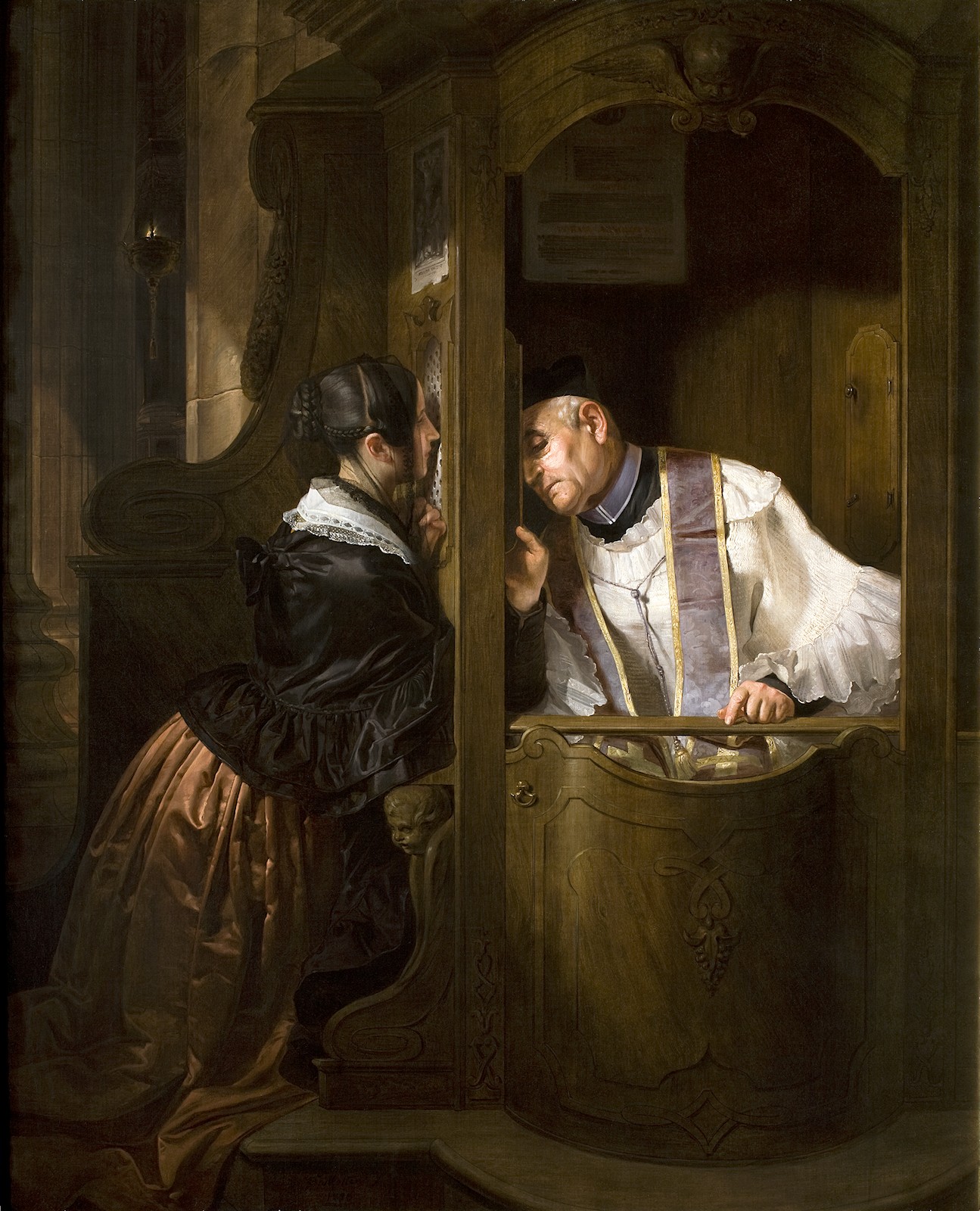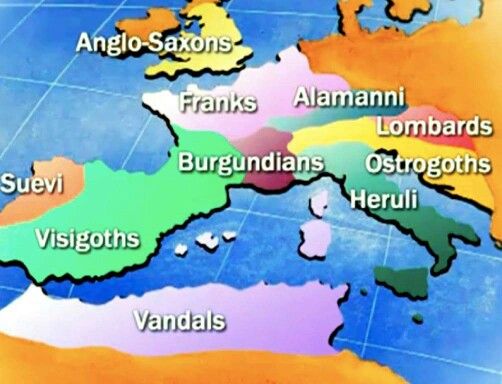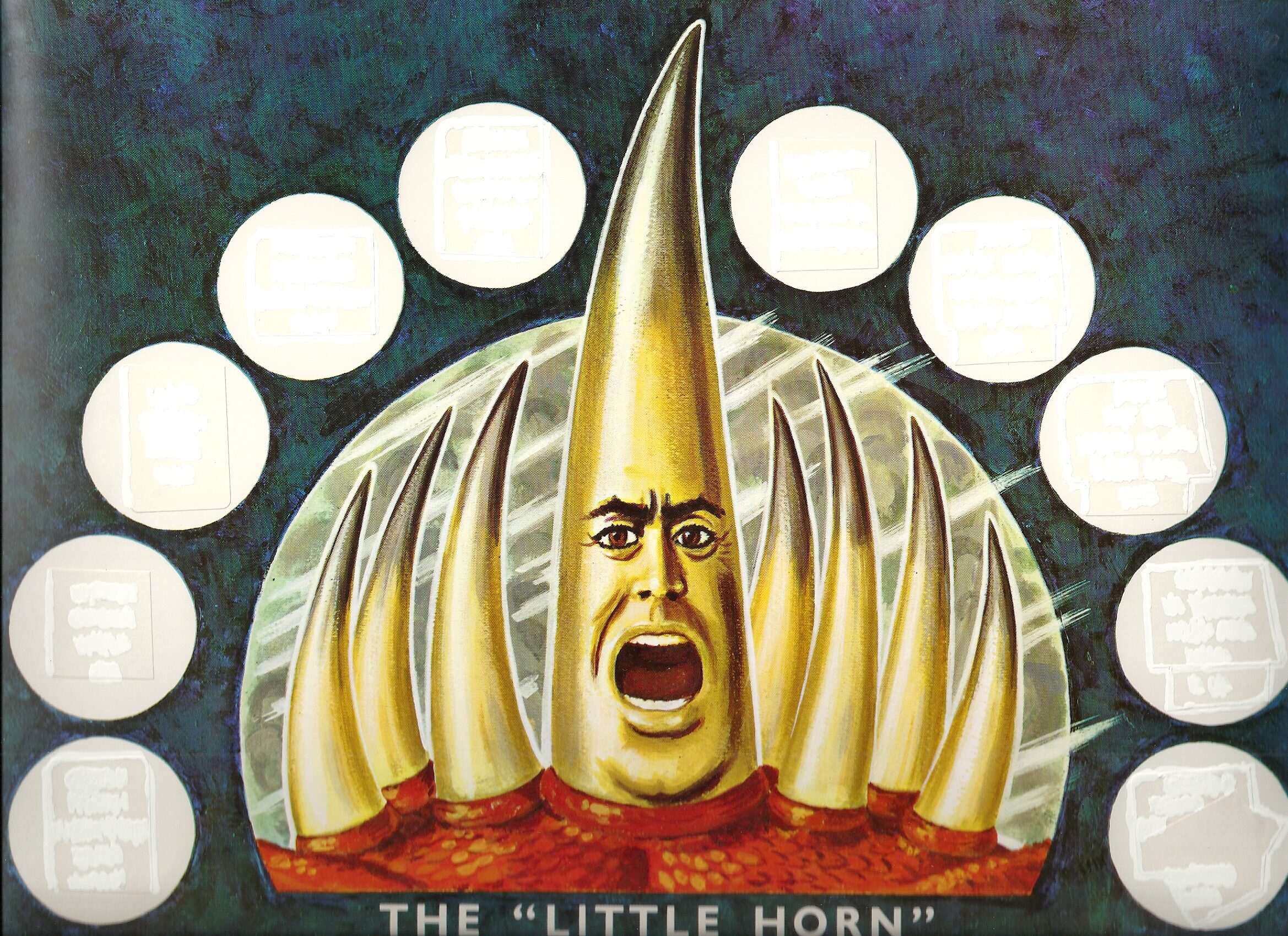The purpose of this study is to establish where the “Unknown Power” begins and ends in the book of Daniel chapter 11:
Method used:
By concentrating on the grammatical pronouns in the Hebrew language, from Dan 11:45 at the end of the chapter, and working verse by verse proceeding backwards to verse Dan 11:16, one comes to the conclusion that we are talking about one power only. The position taken here is, that the Little Horn power mentioned in Dan 7: and Dan 8: is referred to in greater detail with pronouns in Dan 11: Even more, these pronouns in Dan 11: reveal that this power is referring to the Roman Catholic church system of worship governed by the papacy, and does not refer to the King of the North or the King of the South according to this study.
Dan 11:45 “he shall come to his end, and no one will help him.”
This is the end of the Little Horn power taking place at the Second Coming.
All Adventist and Protestant theologians would agree on the interpretation at this point. that this power comes to an end in verse 45.
Dan 11:45 “He shall plant his tents of his palace between the seas and the glorious holy mountain.”

The Little Horn power which is a symbol of Roman Christianity, has planted her system of worship between the seas of wicked nations, peoples (Isaiah 57:20) around the world and the glorious holy mountain which is a symbol of the heavenly sanctuary. (Hebrews 8:1. Psalms 76:2). Roman Christianity has obscured the work of Jesus Christ in the heavenly sanctuary by their system of forgiveness and worship through the priests and popes[1].
Dan 11:44 “But news from the east and the north shall trouble him; therefore he shall go out with great fury to destroy and annihilate many.”
The Little Horn power will try to destroy many referring to all those who do not accept the Roman Catholic system of worship. East and the North refers to the enemies of God´s people in the Old Testament (See my study on Rev 16:12). The following nations came from the East and the North of Israel to battle against the Israelite’s: Assyrian, Babylon, Medo-Persian, Greece and Rome.
Dan 11:43 “He shall have power over the treasures of gold and silver.”
Gold and silver are symbols of belief. Rev 3:18 Rev 18:9.10.
There will come a time when Roman Christianity will have power over all those who accept her system of worship.
Dan 11:42 “He shall stretch out his hand against the countries, and the land of Egypt shall not escape.”
The land of Egypt from the Old Testament is a symbol of atheism: like Pharaoh who did not recognize the power of God at work through the 10 plagues on Egypt.
Dan 11:41 “He shall also enter the Glorious Land.”
The glorious land is a symbol of Gods kingdom her on earth. There will come a time when the Roman Catholic Church (The Little Horn Power) will enter the protestant kingdom of believers including the Adventist church. Matt 24:24. For false Christ’s and false prophets will arise and show great signs and wonders to deceive, if possible, even the elect. Many shall be overcome and some will escape. According to the book of Revelation 16:13, the false prophet here would refer to Protestants especially from the USA who have stopped protesting against the Roman Catholic system of worship.
Dan 11:40 has given many problems to our leading theologians in the church. Why? Because they are not using a correct exegesis. They resort to the quick find method like Google on the internet and Bible Commentaries. When you do not do your own exegesis, then you rely on someone doing it for you. That is a great weakness amongst theologians. When relying on other Bible Commentaries, how do you know that they are right?
Let me explain Dan 11:40. “And at the time of the end shall the king of Negev push at him: and the king of the North shall come against him like a whirlwind, with chariots, and with horsemen, and with many ships; and he shall enter into the countries, and shall overflow and pass over.”
Referring to theologians in the Adventist church who take the position that the Little Horn is the King of the North from let´s say verse 22, this gives us a problem. When using the pronouns and nouns for the King of the North right down to verse 39, then you come to verse 40, this same king of the North meets another King of the North. You cannot have two kings of the North. It cannot be his twin brother either. This gives a problem. Not many theologians mention this problem.
The problem is solved if one takes the view that all the pronouns going backwards from verse 45 to verse 16 refer to the Little Horn power only. Hence, the King of the North is another power which we will deal with in another study.
Dan 11:40 “At the time of the end the king of the South shall attack him.”
The king of the south will be dealt with in another study. However, this King attacks the little Horn power. Dan 11:40 “And the king of the north shall come against him.” This king also attacks the Little Horn power. So we have two kings attacking the little horn power in verse 40. Actually in the Hebrew it is the Little Horn power who attacks the king of the north and the king of the south. It is not the two powers who do the attacking. See my study on Dan 11:40.
The Little Horn power is referred to as the pronoun “he” and nothing else.
Dan 11:39 The pronoun “he” is used for the Little Horn power.
Dan 11:38 The pronouns “him” and “he” are used for the Little Horn power.
Dan 11:37 The pronouns “him,” “he” and “himself” are used for the Little Horn power.
Dan 11:36 The pronouns “he,” “him” and “himself” are used for the Little Horn power.
The noun “King” is also used for the Little Horn power in this verse.
Dan 11:35 No pronouns are used her.
Dan 11:34 No pronouns are used her.
Dan 11:33 No pronouns are used her.
Dan 11:32 The pronoun “he” is used her for the Little Horn power.
Dan 11:31 The pronoun “him” is used her for the Little Horn power.
Dan 11:30 The pronouns “him” and “he” are used for the Little Horn power.
Dan 11:29 The pronoun “he” is used her for the Little Horn power.
Dan 11:28 The pronouns “he” and “him” are used for the Little Horn power.
Dan 11:27 No pronouns are used her.
Dan 11:26 The pronouns “him” and “he” are used for the Little Horn power.
Dan 11:25 The pronouns “he” and “him” are used for the Little Horn power.
Dan 11:24 The pronouns “he” and “him” are used for the Little Horn power.
Dan 11:23 The pronouns “him” and “he” are used for the Little Horn power.
Dan 11:22 The pronoun “him” is used her for the Little Horn power.
Dan 11:21 The pronouns “he” and “him” are used for the Little Horn power.
Dan 11:20 The pronouns “he” and “him” are used for the Little Horn power.
Dan 11:19 The pronouns “he” and “him” are used for the Little Horn power.
Dan 11:18 The pronouns “he” and “him” are used for the Little Horn power.
Dan 11:17 The pronouns “him” and “he” are used for the Little Horn power.
Dan 11:16 The pronouns “he,” “his” and “him” are used for the Little Horn power.
Dan 11:16. It seems like the pronouns “he,” “his” and “him” stop here and the preceding verses describe the fight between the king of the North and the King of the South.
Dan 11:16. “But he who comes against him.” “He” refers to the little horn power and “him” refers to the preceding verse power which is the King of the North being the subject of verse 15.
Now if Dan 11:16 is the beginning of the little horn power then there should be some indication from the preceding verses of the other three horns which were trodden down by the little horn as it came to power, as mentioned in Dan 7:8 and Dan 7: 24.
Such a verse implying the three horns is Dan 11:14. www.scripture4all.org “And in those times, there shall be many who stand up against the king of the Negev: also the sons of the robbers of your people shall exalt themselves to establish the vision; but they shall fall.”
What does robber mean?
As opposed to the thief on the cross, who comes quietly in the night and steals valuables; the robber comes in broad daylight like the robbers in the parable of the Good Samaritan and uses force to take goods and valuables from a person.
Who is the angel talking to in verse Dan 11:16?
It is Daniel the prophet. Dan 10:1 “In the third year of Cyrus the king of Persia a message was revealed to Daniel.”
Who are the robbers of Daniels people during the time the angel was talking to him?
Dan 10:1 the Persians.
Who were the robbers before the Persians?
The Babylonians. Ezekiel 7:22
From these texts, we can see a picture evolving of the statue of different empires as in Dan 2.
Firstly the Babylonians. Secondly the Medo-Persians. Thirdly the Greeks and fourthly Rome.
What did they rob from Daniels people the Israelites?
Their homeland, Israel and Judah. They were deported from Israel to Babylon during the Babylonian captivity during 586 B.C. and before. When some returned from their captivity, they were subject to these powers by the paying of taxes.
According to Dan 2:40, and Dan 7:7.19, the power following Greece is Rome. Rome was a robber of Daniels people. However, the text says in Daniel 11:14 “sons” of the robbers of your people. They were not actually robbers but “sons” of them. This is the subject of the verse and not “robbers” as many theologians have concluded. So we have to find “sons” in the plural which came after Rome and who have fulfilled the vision. Which vision? The vision as a whole previously given in Dan 7: Dan 8: and Dan 9.
Where do we find a plural of powers which came after Rome and fell?

The ten tribes, which were the foundation of Europe are in the plural, but they did not all fall. There were only three tribes that fell, according to the vision. Dan 7:7.8. Dan 7:20.21.
Dan 7:23.24. These are the three kings Visigoths AD 508, Vandals AD 534, and Ostrogoths AD 538. These are the “sons” of the robbers coming after Rome. Therefore Dan 11:14 is referring to the starting point of the Little Horn power after subduing the three tribes: the “sons” of the robbers. This is also the starting point for the pronouns used for the Little Horn such as “he,” and “him” right through to verse 45.
Conclusion:
From this study, we can say that the little horn power is not mentioned as the king of the north, nor is it referring to the king of the south. The Little Horn has no name or symbol. The Little Horn power is referred to as only in the grammatical pronouns such as “he” and “him.” Why? It may be the same reason why the Roman Catholic Church system or the papacy is not mentioned by name in Rev 13:1-10.
[1] C. Mervyn Maxwell, God Cares, Vol. 1 (Nampa, Idaho: Pacific Press Pub., 1981), 297.



